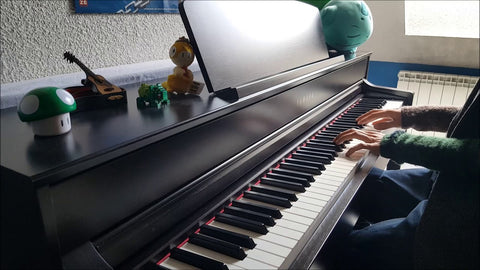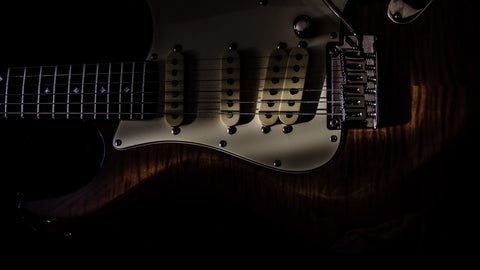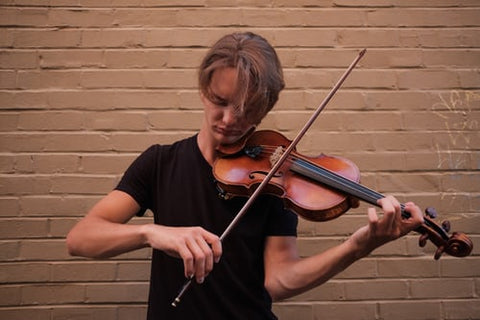Which keyboard is ideal for me? Beginner pianos? Keyboards for beginners?
These are some of the most common questions when entering the world of keyboard instruments, given the number of options that the market offers between acoustic pianos, digital keyboards, synthesizers, arrangers, organets and other terms that often tend to confuse.
The first thing to define when choosing a musical instrument to learn to play:
- Goals of the new hobby
- Budget
- Real needs.
- Type of study and genre of focus
A keyboard is very different for someone who has already defined that they want to dedicate themselves to this instrument with the hours of study that it implies, to someone who until now wants to explore how far their hobby goes.
Another aspect to take into account is the type of study and the genre we intend to focus on. We can start by clarifying that learning classical piano is not the same as learning keyboards in general.
We are going to see some aspects to take into account to be able to differentiate between home keyboards (organettes) and digital pianos to be able to choose the right piano for what we are looking for.

Octaves (number of keys)
The main difference between the home keyboard and the piano is the number of keys on the instrument. While the home keyboard can have 49 keys (4 octaves), 61 keys (5 octaves) or even 73-76 (6 octaves), the digital piano always has the 88 keys (just over 7 octaves) of the acoustic piano, that is, the complete keyboard.
At first this will not make much difference, since both in the classical piano teaching method and in learning focused on simpler pieces of popular music, the student will be focused on the central 5 octaves of the keyboard. Until a certain level is acquired, we will not hear that famous phrase: “Dad, I'm missing keys!”
The relevant thing with the size of the keyboard is that the person can type with both hands what they practice in their classes. Many times it is children who explain to their parents that the instrument they practice with at the academy or conservatory has 88 keys.
Weighted Key Vs Touch Sensitive Key
Also when it comes to keys, there is another big difference that will ultimately be of great relevance when deciding between a keyboard or a digital piano. We refer to the “counterweight” or the “hammer action”.
Acoustic pianos have a mechanical system where each key activates a padded hammer that strikes the corresponding string. This mechanism gives each key a characteristic natural weight, to which the hand gradually gets used to.
The keys on digital keyboards, being an electronic circuit system, do not have a natural counterweight. This is why organets usually have what is known as a light key. It is not common to find a 61-key keyboard with a weighted key on the market. However, we can make sure that it at least has touch-sensitive keys . This type of key, despite not being counterbalanced, is capable of capturing the speed and force with which we press it and therefore emits a different volume in response to the weight of the keystroke. This allows musical learning not to stagnate when we begin to see musical concepts such as dynamics and expressiveness, and makes the useful life of the instrument longer than a keyboard without a sensitive key, which although they are cheaper, in a short time will involve a buyback.
Although no digital keyboard needs a natural counterweight, digital pianos include an artificial counterweight that helps exercise and accustom the hand to the weight that the student will find on an acoustic piano. Here the concepts of “hammer key” or “hammer action” appear. This is necessary in the case of the classical piano teaching method of academies and conservatories, which includes certain techniques specific to acoustic string piano. Since it is difficult for a student to acquire an acoustic piano (with strings), with the investment that this entails, this is where the digital piano (without strings, but with a counterweight) comes in as a viable alternative to study classical piano. Again, the important thing is that the student can practice at home, on an instrument as similar as possible to the one found at the academy.
Additional functions
Another of the big differences between organets and digital pianos, although this is not true in 100% of cases, are the functions that each instrument performs. Organets generally come equipped with a large number of sounds and rhythmic accompaniments, which are often a great hook for children, since they can play their favorite songs with the sound of a rock band in the background.
Digital pianos, on the other hand, especially models designed for the studio, are a little more sober in that sense. In most digital pianos we will not find more than 20 sounds, which generally correspond to different types of piano, electric pianos, harpsichord and organ. They do not usually have accompaniments or large sound libraries, although there are always options and versions that do.
It is up to each of us to define whether we need these functions or not, and for children it is often a double-edged sword. For some children, so many functions may be the reason why they sit down at the piano, while for other children it will only be a distraction.
Polyphony
To end the differences, we have another no less important section, which is polyphony. Very briefly, it is the number of notes or sounds that can be played at the same time on a digital keyboard. It also influences the sound quality of the piano. Theoretically, the higher the polyphony, the closer it is to the sound of a real acoustic piano. This scale corresponds to a binary system similar to computer memory, so it only applies to digital keyboards.
In domestic keyboards, depending on the number of keys, it will range from 8, 16, 20, 24, 32, 48 and up to 64 voices of polyphony normally.
Digital Pianos normally start at 128 voices of polyphony, although to study classical piano a minimum of 192 voices is recommended. The ideal is to have a digital piano with 256 voices of polyphony for a more realistic sound. There are also those below with 128, which are probably cheaper, as well as we can also find polyphonies of 384 voices or even 512 in the most advanced models.
In conclusion, although it may seem that it is not easy to decide, since in the end, no one knows if young piano learners will want to continue studying or not, most of the time it is the instrument that helps the student not to give up. . The more similar it is to the one you use at school, the more attachment you will gain with the instrument and the more satisfaction and enjoyment you will gain, which translates into a greater chance of success.

Although the intention to surprise with an instrument as a gift is appreciated, it is very important that the instrument is chosen by the person who is going to use it. Music is above all things enjoyment, which is why it is important to choose an instrument that the person likes and can enjoy. That can be what ultimately makes the difference between a daily practice or the instrument ending up collecting dust in some corner of the house.






Comments (20)
Estoy empezando la carrera de pianista, y mis padres están viendo que me pueden comprar para empezar, que me sirva y esté dentro de todo a un precio económico.
Usted que me recomienda? Que compre un órgano de 65 teclas o ahorrar un poco más y comprarme uno con más teclas.
Muchas gracias por tan valiosa información.
Buenas tardes, estaba interesado en comprar un teclado para mi hijo de 10 años, lleva 4 años dando clases de música (solfeo sin instrumentos) y este año ha empezado a dar clases de piano, no sé muy bien que instrumento comprar, por si me pudieran aconsejar.
Un saludo
hola! Estoy buscando teclado para principiante, niño de 10 años. Teclas contrapesadas y 5 octavas. Alguna recomendación?
Hola como están, mi hija de 11 años empieza a aprender a tocar piano, necesito ayuda para saber que teclado o organeta me recomiendan.
Favor informar recomendar Teclado $ 1`500.000 a $ 2`000.000 con Tecla sensible al tacto y 256 voces de polifonia + AUDIFONOS+ SILLA . Con Garantia. Novatos ! MIL GRACIAS. Jorge Valencia. 315 339 28 33
Интересная новость
_________________
играть в игровые автоматы онлайн на деньги с первым бонусом
Довольно интересно
_________________
где в киеве казино, закон казино украине, казино онлайн за гривны.
Buena noche, por favor me puede ayudar en para comprar un teclado, cuale recomiendan, qué sea bueno con lo necesario y sobre todo lo que ustedes recomiendan en los mejores teclados, con los 256 voces y qué traiga todos los accesorios, Gracias espero respuesta
Mi hijo de 5 años quiero que aprenda a tocar el piano que me recomienda.